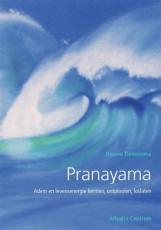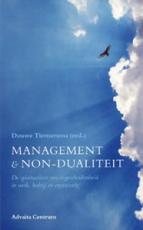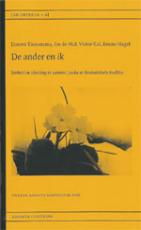Volume 14 No. 16 - What happens when everything disappears?
September 16, 2013
Text satsang
From an Advaita talk with Douwe Tiemersma ,Gouda, October 27, 2004
What happens when everything disappears?
That transition is always very striking. You are chatting with each other and then suddenly: stop. Then you can be aware of
everything that you bring with you to that conversation. Because everything
that you bring with you means tension. When it's quiet everything can
disappear. Just notice that disappearance. What would happen if everything were
to disappear? What happens then?
Nothing remains.
Wrong answer.
(Someone else) Openness.
Wrong answer.
(Someone else) It's just
temporary.
Wrong answer.
(Someone else) There's
only spirit left.
Wrong answer.
(Silence)
What happens when everything really disappears?
And then you are talking from out of that fullness! Take a more precise look.
What does it mean when the last I-tension falls away? What about the I-tension,
the I-heaviness, the separation between inside and outside? See the possibility
of the I-tension, this I-weight, that separation falling away. When you see
that I-tension somewhere then you can imagine what it means when it drops. You
see that that little I has no chance to survive in that space. Just imagine
what it means when you forget that little I, that it's resolved into space,
such that it never returns. Experience that it's a complete surrender. Stay
clear. Whenever you are not present then you have that 'I' back before you know
it and without you being aware of it. In that transition remain aware of the
absolute space in which everything dissolves, in that absolute black hole into
which everything sinks. Let this absolute dimension remain open. Otherwise it
remains a limited, lethargic state. Is there anything that's still unclear?
Everything still forms
into words, ideas.
The point is that you can see these
concretions anew with their I-tensions. When the absolute really breaks it open
somewhere, when that really happens, then that dimension doesn't disappear
anymore. And that breaking open always continues to function. That's not
something you do, it happens. The only problem is when you become distracted
and completely dive back in somewhere so that you build up imaginary walls
around it once again, so that you are so concentrated on other things that that
other is pushed away. If you have the slightest experience that the absolute is
key then this won't happen. Do you see the essence of surrender? It's a
complete forgetfulness of everything that was of importance to your 'I'.
Your question was: what
happens when everything disappears.
Yes.
Nothing, of course.
Sure, but look out for your words.
It's very clear what I'm
saying.
Be careful with words.
Of course there is no
answer to that question.
There is only one possible answer to that question.
No. That 'I' who should
answer the question is gone, of course. That's no longer there. So the question
disappears.
There is only one answer.
What is it then?
I asked you.
I can't give the answer,
because if everything is gone, then the one who can give the answer is also
gone.
You're doing quite a bit of talking.
But you asked me.
Yes, and I hoped for the correct answer.
And if I try to give it
than I'm doing quite a bit of talking.
Right. Because you are trying to give it.
Aha, so silence is the
right answer.
No.
So there is no answer.
There is.
So I can't think of an
answer.
Then you are already one step closer.
I 'm a step closer when I
can't think about it?
No, when you say it like that.
So the answer lies beyond
thinking.
Just one step further.
And I can't find the
answer with thinking, of course not, because it's beyond thinking. So thinking
must remain silent in order to find the answer.
That was the further step.
That was the answer?
That's still no answer. It's a small step further
in the direction of a response.
But everything that I'm
saying is dual, is from the mind. So thinking teaches me that thinking can't
find the answer. Thinking should become silent and then there's nothing more to
say.
And then you come to the point.
To not say anything
anymore?
When you don't say anything anymore, then it might
happen.
Then the search stops.
So just for once just stay there.
One is speechless ...
Notice how many things disappear around that
absolute. When that really manifests we could be sitting here for maybe a
couple hundred years. Time disappears. When time returns you notice: time is
tension. Because something must be projected: time and something that is spun
out within it.
I am experiencing an
opening in which everything disappears, but ...
Excellent.
... But it doesn't just
continue. Time returns, as it were.
The important thing is that the other
dimension just remains open.
That's always there. But
it's like standing on the edge of a knife.
That is a time period in which you have to stay incredibly alert so as not
to get caught so that it closes back up again.
****
Er is geen tweeheid
als je ontspannen bent
in zelf-bewustzijn
is dat duidelijk.
Boeken
Douwe schreef en redigeerde gedurende zijn leven boeken. Via onze uitgeverij zijn deze nog verkrijgbaar.



